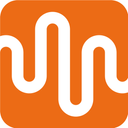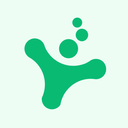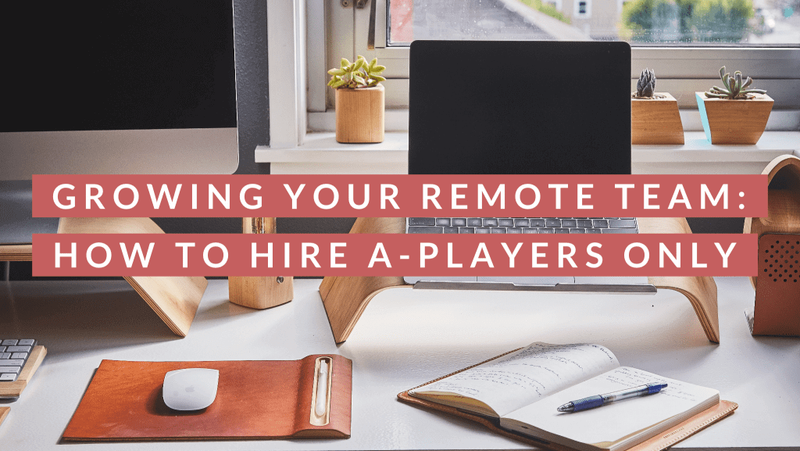Five and a half Keys to Success as a Digital Nomad

When people see the lifestyle of many digital nomads, they are often awed: frequent travel to interesting locations, work in something that matters to you on a schedule you determine, and thoughtful conversations with interesting people who share your lifestyle. For those just starting out in remote work and the digital nomad lifestyle, a basic level of success is easily obtained. Indeed, you don’t need to be making a lot of money to be successful. Rather, it is the correlation of your personal lifestyle in relation to your goals that determines your success as a digital nomad, not some arbitrary amount in one or more bank accounts. But if you want that success to be lasting, not just something you enjoy for a few months, you will need to carefully manage certain aspects of your uncommon life to build a framework to enjoy your digital nomad life for years to come.
Routine

The key to successful work, not just remote work, is having a routine that makes sense for your location, the work you do, and your own particular biochemistry. As a digital nomad, you need to work particularly hard to shed the constraints of a 9-5 way of thinking, which can even impose themselves on you some time after you’ve become location independent. In his book Daily Rituals Mason Currey documents how many great artists, inventors, and leaders had a particular routine that helped them create great work.
I usually get up at about 5:30, and I’m ready to have coffee by 6, usually with my husband. He goes off to his work around 6:30, and I go off to mine. I keep a hotel room in which I do my work–a tiny, mean room with just a bed, and sometimes, if I can find it, a face basin. I keep a dictionary, a Bible, a deck of cards and a bottle of sherry in the room. I try to get there around 7, and I work until 2 in the afternoon. If the work is going badly, I stay until 12:30. If it’s going well, I’ll stay as long as it’s going well. It’s lonely, and it’s marvelous. I edit while I’m working. When I come home at 2, I read over what I’ve written that day, and then try to put it out of my mind. I shower, prepare dinner, so that when my husband comes home, I’m not totally absorbed in my work. We have a semblance of a normal life.
This is how Maya Angelou managed her workdays. She made her home particularly pleasant, so it was important for her to get away to her own private “coworking space.” She gave herself metrics on how to end her day based on whether she was hitting flow state, and then she went back home. That routine empowered her to be creative. What Currey noticed in all of his profiles was that the ability to create like an artist meant having a routine like an accountant.
Obviously if you need to be in contact with your clients on a daily basis, you shouldn’t choose a location for yourself that means you need to live a life in conflict with your biochemistry. For example, if you have clients in any of the main US time zones, but you’re in Chiang Mai, you’re ending your day as they are starting, and as you start your day, they are sitting down to dinner or preparing for bed. Perhaps such a schedule is fine if you’re a night person, but if you’re not, why would you choose a working location so at odds with clients, and ultimately, yourself? Be adventurous about your work location but be realistic about your work availability in that location.
Success as a digital nomad means having a routine that works for your wherever you are in the world. You’re a remote worker now, so you get so much more freedom to tailor that routine. Examine that routine and make it standard and antifragile so it stays basically coherent wherever you might travel.
Infrastructure
When you are in a fixed location most of your infrastructure is settled, whereas when you live as a digital nomad, you take your infrastructure with you. Let’s examine some key parts of your remote work infrastructure:
- Phone and Data: some countries/companies have incredible cell phone plans with generous data allowances for your worldwide travel at reasonable add-on prices. But some may prefer to get a new SIM whenever they are in a new country. Yet others have a worldwide data device that gets them access in many countries. There is no one-size-fits-all solution. Look at your own lifestyle and upcoming itinerary and see what makes sense for you. Yes, you may have powerful wifi at your home or coworking space, but you need to have a personal backup by having access to dedicated data.
- Insurance: this is not simply the regular travel insurance which people in various parts of the world are almost religious about purchasing for even the shortest of trips. It’s important to have your health care sorted. Even the best national health plans are not easily transported around the world, so make sure that you are covered for your medical needs.
- Banking: Most digital nomads are familiar with the borderless digital-only banking solutions like Transferwise and N26 that can give you cards that work in multiple countries using multiple currencies. You may have a favorite among these solutions, but make sure to open up at least one backup solution. A card may be lost or stop working for whatever reason and you don’t want to not have options in a situation where it may be difficult to quickly get you a replacement card.
- Visa: While the world does seem to be more open than ever, with announcements of visa-free access between countries coming regularly, the entire dance with the immigration authorities in any country can quickly turn into a part-time job, even when the regulations are straightforward. Do your research and make sure that you can legally live in the country you’ve chosen for the time you plan to stay. Getting a visa isn’t a matter of just “trusting the universe” and being fun and spontaneous. It’s a serious process that remote workers take should take seriously.
- Accommodations: You may thrill (as many of us do) to the reality of very inexpensive accommodations, but keep in mind that it’s not often that the cheapest living arrangements are the most conducive to your work and/or life. If your living situation isn’t optimal there’s no way that your work will be.
Coworking — or Not?
Many people assume that the cost of a coworking space is a necessary part of being a successful remote worker. But the truth is that you might easily be able to get accommodations for yourself that include a dedicated working space in which you can work alone or even invite a few friends you make along the way. Coworking can be great and useful, but it’s not for everyone, and it’s not the only place you can accomplish work. If you like occasionally being around a large group you can always drop into one from time to time, but don’t rule out creating your own coworking space within your accommodations and bank the commute time and money you’ll save.

As an aside, the growing coliving movement can be a fun adaptation to this question: you get accommodations, a place to work, and a ready-made ever-changing community of fellow digital nomads. Such arrangements don’t exist everywhere yet but it’s at least worth investigating as one more accommodation/work possibility.
Use Events to Build Your Travel and Tribe
One of the most impactful ways you can grow in your remote work career is by attending useful events. Obviously, with our own community, the Dynamite Circle, we are biased about the value that we know our DC Bangkok, DC Austin, and worldwide DCx events bring on an annual basis. But there are other events out there that can help you grow as a digital nomad. If you’re going to travel for an event, treat it like work and add on some personal travel before or after the event. As noted above, routine is key to success in any line of work, not just remote work, and travel is the great killer of routine. Therefore you want to be smart and surgical about your travel, knowing that it will wreak havoc on your routine and work life. Everytime you add additional travel on top of events, away from where you are based for the moment, you’re introducing chaos and difficulty into your remote working life, and there’s no need to do that solely in the name of “doing what I want to do.”

While these events may feature inspiring talks and useful new hacks to add to your arsenal, the value you obtain above and beyond the sessions you attend will be the private conversations you have, one-on-one, or in groups, with possible new friends and clients. While you can use facebook groups, Meetup, and Couchsurfing to meet new friends who are also living where you are based, specifically themed events or conventions significantly increase the possibility of meeting new collaborators, partners, or clients, which you need in order to develop and grow professionally.
Consistently Reflect
While “freedom” may be the most frequently cited reason that people choose the life of a digital nomad, a hidden benefit less frequently used is the time and ability to reflect. A few key questions you should be asking yourself at least once a quarter:
- Am I doing what truly matters to me, both personally and professionally?
- Am I living the life I want right now?
- Have I consistently kept up with family and friends and told them how much they mean to me?
- Am I taking time for myself to recharge every single week?
For each of these four questions, the follow-up to a “No” answer should be, “Why not?” Remember that anytime you catch yourself saying, “I don’t have time,” try the reframe of “It’s not a priority for me” and see how that sits with you. Close with two more focused questions:
- What am I most grateful for in the last three months?
- What is one thing I could have done better in the last three months?
Keep track of these answers, be it in an old-fashioned notebook or on a digital device. You may never refer back to them, but that’s not the point of jotting down your answers. The point is the actions you will take as a result of asking them.
Since Dan Andrews has the monopoly on “five things” I’ll add just an additional half a thing to consider: enjoy the journey. Most of us who have lived this lifestyle for some time often tell the ones just entering it to slow down and enjoy the journey. It’s an amazing time to be alive and the opportunities truly are endless. As a result, you can sometimes get pulled into the “do all the things” mindset. Resist that. Slow down. Enjoy.
About the writer:
Stephen Heiner creates content professionally at Writerly and personally at The American in Paris and on Medium. You can follow his work and travels on Instagram and Twitter @stephenheiner.
Related Posts:


Featured Remote Jobs
 New Job! Featured Job Remote Job
New Job! Featured Job Remote Job New Job! Featured Job Remote Job
New Job! Featured Job Remote Job Opened 2 days ago Featured Job Remote Job
Opened 2 days ago Featured Job Remote Job Opened 2 days ago Featured Job Remote Job
Opened 2 days ago Featured Job Remote Job Opened 3 days ago Featured Job Remote Job
Opened 3 days ago Featured Job Remote Job Opened 4 days ago Featured Job Remote Job
Opened 4 days ago Featured Job Remote Job Opened 5 days ago Featured Job Remote Job
Opened 5 days ago Featured Job Remote Job Opened 6 days ago Featured Job Remote Job
Opened 6 days ago Featured Job Remote Job Opened 10 days ago Featured Job Remote Job
Opened 10 days ago Featured Job Remote Job Opened 10 days ago Featured Job Remote Job
Opened 10 days ago Featured Job Remote Job Closes in 13 days Featured Job Remote Job
Closes in 13 days Featured Job Remote Job Closes in 13 days Featured Job Remote Job
Closes in 13 days Featured Job Remote Job Closes in 7 days Featured Job Remote Job
Closes in 7 days Featured Job Remote Job Closes in 6 days Featured Job Remote Job
Closes in 6 days Featured Job Remote Job
